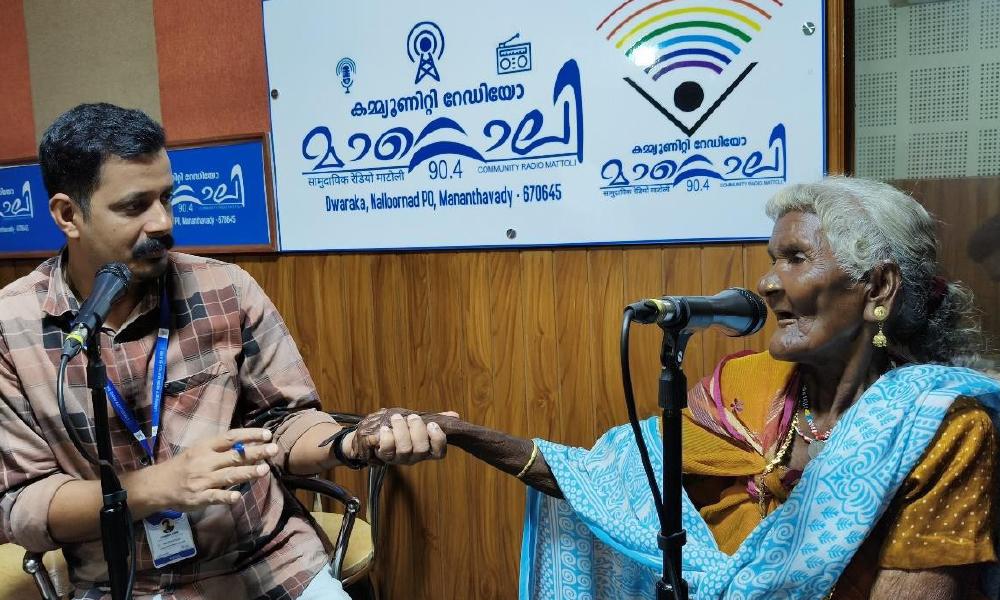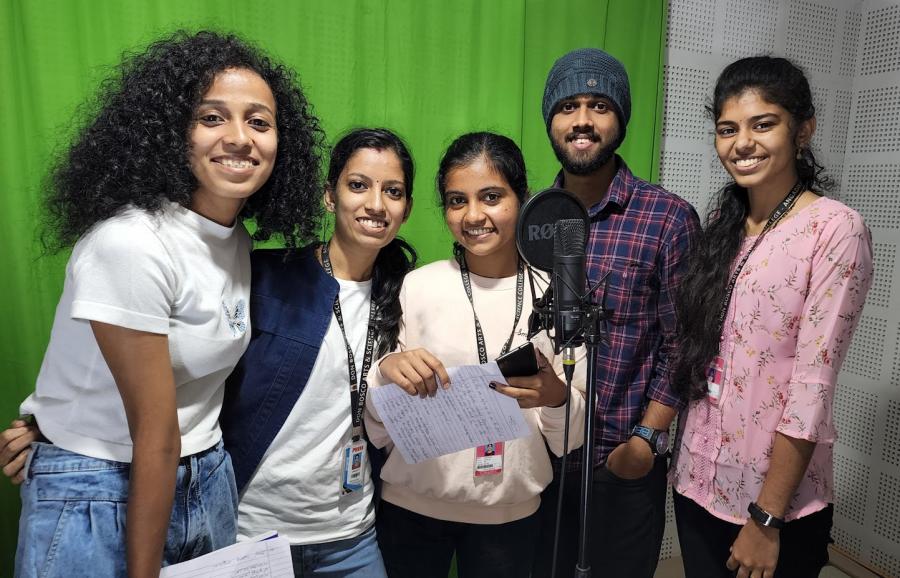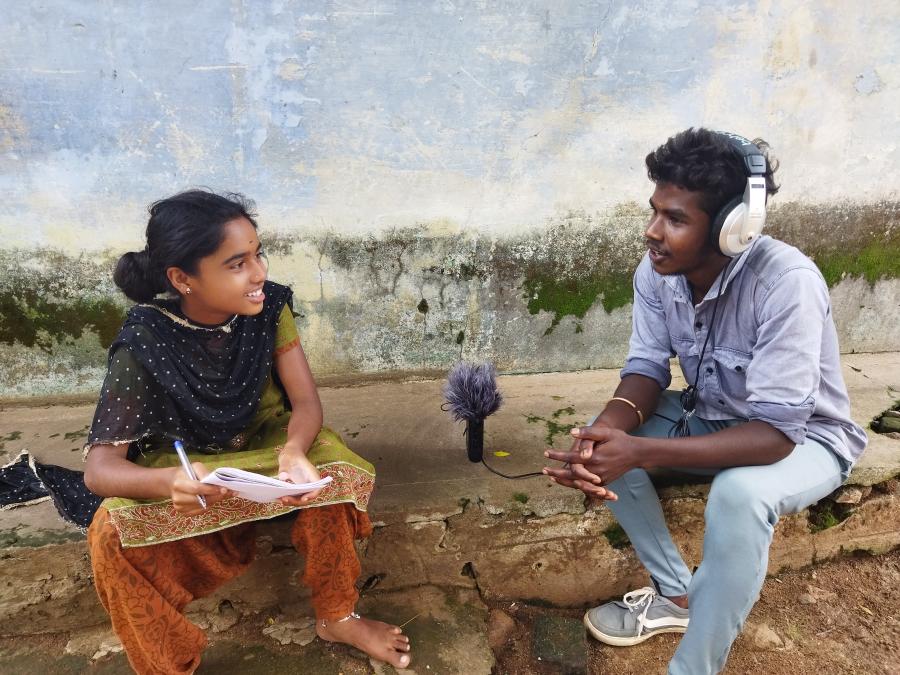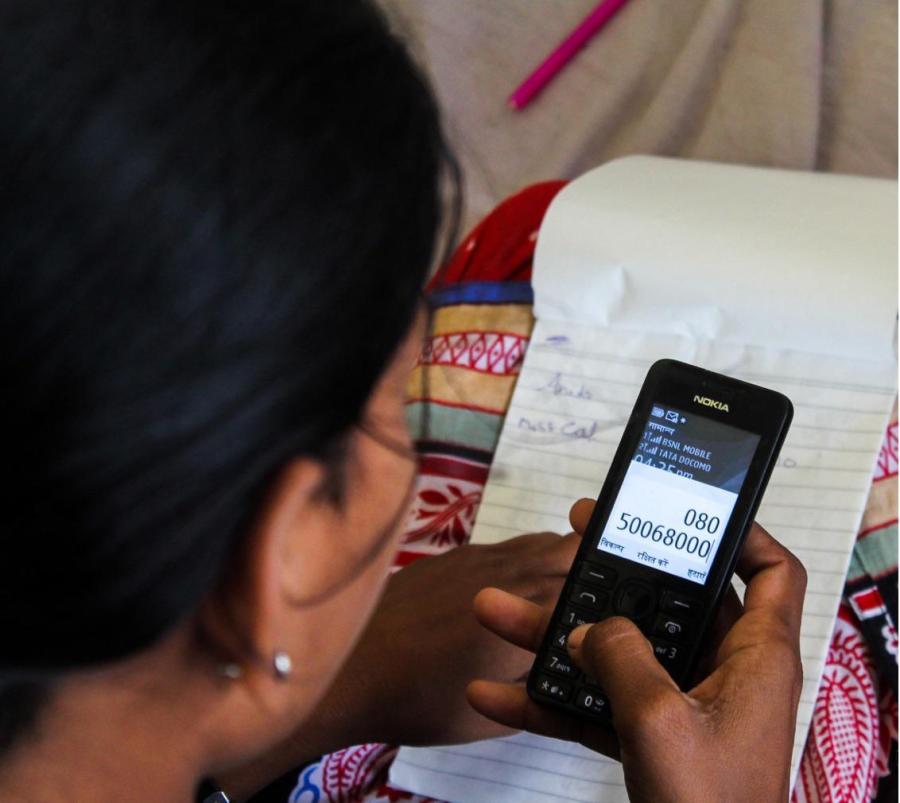
By Bijo Thomas, Radio Mattoli Station Director
The long-marginalized Indigenous communities in Kerala's Wayanad District, India, are finding their voice through the Karuthal Project, a community radio initiative supported by Cultural Survival. The program, run by Community Radio Mattoli, is empowering groups like the Paniya, Kurichia, and Naikka to become advocates for disaster resilience and climate action, using their own cultural heritage as a guide.
For generations, these communities have lived in relative isolation, maintaining their own unique traditions and methods of survival. However, as younger generations began attending schools and entering urban areas, a cultural shift occurred. Many young people adopted modern names and showed less interest in their native languages, often feeling a sense of inferiority about their heritage. The Karuthal Project was launched to address this by helping Tribal communities integrate into modern society without losing their identity.
Reclaiming Identity and Heritage
The project's goal is to instill pride and confidence in the Indigenous people of Wayanad, who are the original custodians of the land's rich culture. By documenting and broadcasting their cultural knowledge, concerns, and deep connection to nature, the initiative is helping them reclaim their heritage and stand alongside others as equals.
As part of the project, Radio Mattoli conducted 10 narrowcasting sessions—targeted broadcasts for small, specific groups—in Tribal hamlets across the district. Participants, who included Tribal community members, local residents, and volunteers, were encouraged to create their own programs in their native languages. These broadcasts highlighted the richness of Tribal culture, fostering a sense of unity and appreciation among all residents of the district.

Radio Training and Advocacy
Staff from Radio Mattoli, along with Tribal youth volunteers, participated in a four-day training program where they learned the basics of journalism, fact-checking, and various program formats, with a special emphasis on how to effectively promote Indigenous cultural heritage. The training was designed to help them create impactful programs that would engage their communities.
For years, the voices and grievances of Indigenous people have been ignored due to a history of discrimination. Radio Mattoli is the first media outlet in the region to advocate for their rights. Through the station, Tribal communities can now gather and express their views and know they are not alone in their struggles. While the feeling of inferiority still lingers for some, a new movement has begun of young Tribal members working to empower their dialects and traditions.
A Call to Action on Climate Change
Since the project's launch, many participants have visited the radio station for interviews and live shows to discuss their culture and concerns. They believe that the Indigenous way of life, which is in harmony with the environment, must be preserved to maintain ecological balance.
They have also voiced their fears about climate change, particularly in the wake of a catastrophic landslide in July 2024, the first event of its kind to claim so many lives in Wayanad. Through Radio Mattoli, they have become advocates for disaster preparedness and climate mitigation, sharing ancestral knowledge about how to respond to environmental challenges.
The Karuthal Project, with the support of Cultural Survival, has proven to be a catalyst for change. It has amplified the voices of Wayanad's Indigenous populations, raising awareness of their rich culture and empowering them to take their rightful place in society.
In 2024, Radio Mattoli received a grant from Cultural Survival’s Indigenous Community Fund, which provides opportunities for journalism, broadcasting, audio editing, technical skills, and more for community media from Indigenous communities around the world. In 2024, the Fund provided $480,000 in grants to 57 Indigenous communication projects benefiting Indigenous communities in 25 countries across the Americas, Africa, and Asia, including Argentina, Bangladesh, Bolivia, Botswana, Brazil, Chile, Ecuador, Colombia, the Democratic Republic of Congo, El Salvador, Guatemala, India, Kenya, Mexico, Nepal, Nigeria, Peru, the Philippines, Senegal, South Africa, Tanzania, the United States, Venezuela, and Zimbabwe.



